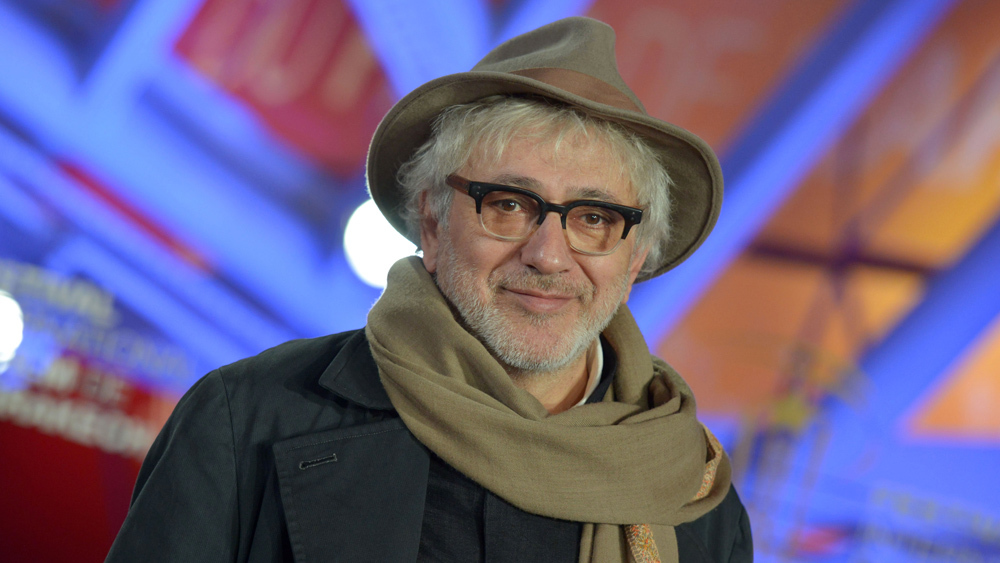
Source: TheQuint.com
Martin Scorsese is 76 years old. He has been working for over 50 years. The Irishman is his 37th feature film. It sees him returning to the gangster genre, which has given him some of his biggest hits. It reunites him with Robert De Niro and Joe Pesci after almost 25 years. In short, it should be an easy bet.
Yet, The Irishman has no right to be this good. It is not just a grand achievement that shows Marty still has new stories to tell, but a sharp refutation that comes at a time when bad faith criticism is directed way too easily at the filmmaker.
Based on Chares Brandt’s non-fiction book I Heard You Paint Houses (which is also the title the film uses on screen), The Irishman tells the true life story of mob hitman Frank Sheeran (De Niro) as he reflects on his involvement in the disappearance of legendary union leader Jimmy Hoffa (Al Pacino). It’s a decades-spanning tale that sees Sheeran as a young war veteran taken in by crime boss Russell Bufalino (Pesci) before being enlisted to be a right-hand man of sorts to Hoffa, with whom he develops a deep friendship until inevitable tragedy strikes.
While touching upon Scorsese’s career-long themes of loyalty, morality and the history of the American nation written in blood, The Irishman feels fresh like a young director aching to prove his mettle. It would be easy to count it as another entry in his loose triptych of Goodfellas, Casino and The Wolf of Wall Street, or any of the filmmaker’s other films that one might accuse of being “the same.” But The Irishman is its own beast. This film is more pensive, carrying a genuine sense of loss, regret and ageing.
The differences begin with Frank’s character, who unlike Henry Hill or Jordan Belfort , is as unambitious a man as they come. He is driven by a post-Great Depression, post-World War II muddling of ethics, wanting nothing but a cushy job and to be in the good books of the crime families that ruled the land. He earnestly capitalizes on his time as a soldier to prove that he is good at murder. (Interestingly, Scorsese is the second filmmaker this year to posit that a history in the armed forces may give one a predilection for violence, a thesis that is simple but increasingly taboo in nationalistic times.) Frank is for the most part, ‘just following orders,’ an approach that becomes complicated when the two men he is loyal to end up on opposite sides of the coin.
De Niro is fantastic in the role, he hasn’t had something this meaty to chew on in ages. The cast around him is equally excellent. Scorsese brought Pesci out of retirement for The Irishman, and gives him the against-type character of the elder gangster: wise, underplayed, as ruthless as he is kind. And then there’s Pacino, with whom Scorsese is working for the first time. Pacino gets to play a real-life iconic character and still carries that bombastic energy he has displayed in his late career. Ray Romano, Harvey Keitel, Anna Pacquin and Bobby Cannavale bring a lot to their small but pivotal parts.
Most of all, Scorsese finally gives us a De Niro-Pacino love story worthy of their collective talents. Fans of the two actors have been clamoring for them to share screen time since the 1980s but were left hanging by films like the excellent Heat (1995), which only gave them two scenes together and Righteous Kill (2008), which was outright terrible. These fans should be more than satisfied with The Irishman. The stealth title I Heard You Paint Houses correctly centers their relationship as that is the line Hoffa utters to Sheeran the first time they speak. Scorsese really allows their friendship to build and breathe as it forms a large portion of the film’s 209 minute runtime.
Without spoiling much, it’s relevant to note that The Irishman does not end up where one expects it to. Scorsese and writer Steve Zaillian zag where they are expected to zig so smoothly that it takes a while for the viewer to realise that they’re on a different path altogether. It’s that sinking feeling of being in a car with a mixture of friends and strangers, and realizing something is not right.
To repeat an earlier point, this 76 year-old filmmaker didn’t have to go so hard. He didn’t have to deliver such a brilliant and brutal take-down of machismo and spineless conformism, not to mention a genre he may have helped romanticise. With The Irishman, Martin Scorsese takes a shovel to the gangster film and buries it. This is cinema.
More on Movies & Books






Leave A Comment
You must be logged in to post a comment.